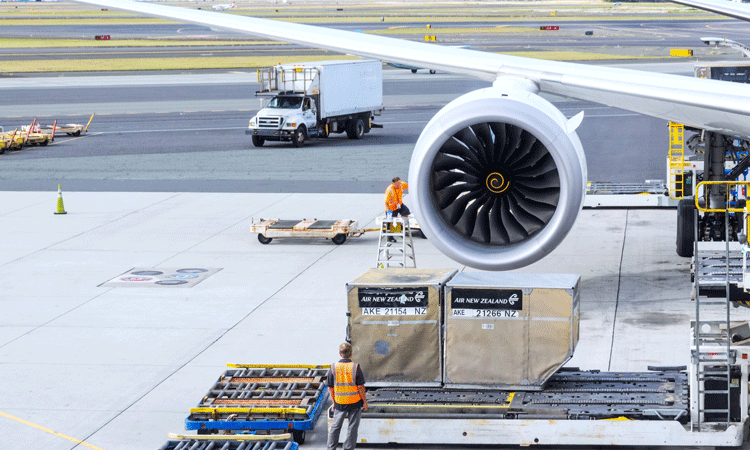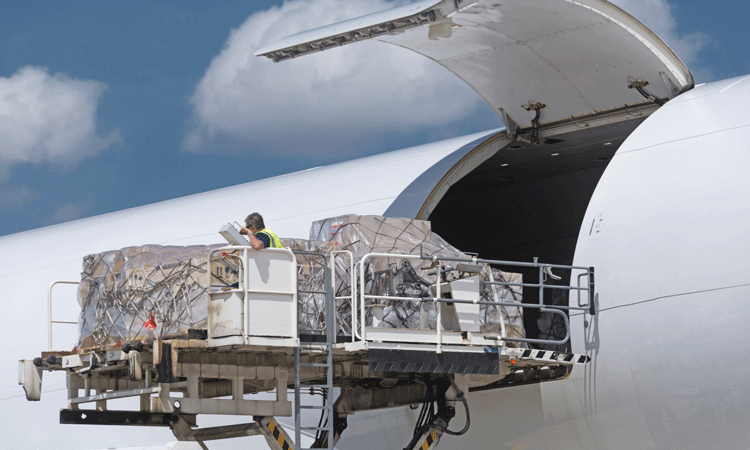The air cargo boom and what it means for the future of aviation
- Like
- Digg
- Del
- Tumblr
- VKontakte
- Buffer
- Love This
- Odnoklassniki
- Meneame
- Blogger
- Amazon
- Yahoo Mail
- Gmail
- AOL
- Newsvine
- HackerNews
- Evernote
- MySpace
- Mail.ru
- Viadeo
- Line
- Comments
- Yummly
- SMS
- Viber
- Telegram
- Subscribe
- Skype
- Facebook Messenger
- Kakao
- LiveJournal
- Yammer
- Edgar
- Fintel
- Mix
- Instapaper
- Copy Link
Posted: 21 February 2025 | Mpho Rambau | 1 comment
For International Airport Review, Mpho Rambau, Acting Group Manager for Traffic Development at Airports Company South Africa, talks about the growth of the air cargo market, the African Continental Free Trade Area (AfCFTA) which is set to boost intra‑African trade and how they are preparing for this at their airports.


In the dynamic landscape of global aviation, air cargo has emerged as a pivotal element in the business strategies of leading airport operators, with Airports Company South Africa (ACSA) being no exception.
Recognising the resilience and potential of air cargo, ACSA has strategically integrated it into its broader business model set to drive regional economic growth and development. This comes as a positive outlook for the global air freight market brings promise of future growth and stability for the sector.
Market growth
The global air cargo market has seen positive growth for more than a year now, with the International Air Transport Association (IATA) revealing robust traffic gains since August 2023 and double-digit industry growth for seven consecutive months.
This sustained growth trajectory has been driven by multiple factors, including a boom in e-commerce, with the surge in online shopping dramatically increasing the demand for air cargo services. Consumers expect faster delivery times, and air cargo is the preferred mode for high-value and time-sensitive goods.
Additionally, innovations in logistics and supply chain management, including the use of artificial intelligence and the Internet of Things, have enhanced the efficiency and reliability of air cargo operations.
Significant shifts in global trade patterns, including the rise of emerging markets, are also reshaping air cargo routes and hubs. With the African Continental Free Trade Area (AfCFTA) opening new avenues, ACSA is well-positioned to leverage its capabilities for sustained growth and market leadership.


Driving African trade
As the world’s largest free trade area, AfCFTA brings together the 55 African Union member countries and eight economic regions, representing a transformative opportunity for the air cargo sector in Africa. AfCFTA aims to boost intra-African trade, which is expected to significantly increase the demand for air cargo services.
As part of the AU Agenda 2063 strategy, AfCFTA is set to boost income by $450 billion (R8 trillion) and lift more than 30 million people out of poverty across the continent. The World Bank estimates that the AfCFTA could boost Africa’s exports to the rest of the world by 32% by 2035 and catalyse foreign direct investment, which is expected to rise by between 111% and 159%.
In essence, AfCFTA simplifies and harmonises trade regulations across African countries, reducing barriers and making it easier for goods to move across borders. This increased trade flow will naturally lead to a higher volume of air cargo.
Additionally, by fostering closer economic ties between African nations, AfCFTA encourages the development of regional supply chains. This integration supports the growth of industries that rely on efficient air cargo services, such as manufacturing and agriculture.
Preparing for increasing volumes
ACSA is positioned to capitalise on these trends to bolster its business model. Thus, to meet the anticipated rise in air cargo demand, ACSA is currently investing in infrastructure improvements, which include expanding cargo terminals and upgrading air traffic control systems to handle increased traffic efficiently.
Furthermore, by incorporating advanced technologies in its operations, ACSA is improving the efficiency and reliability of its cargo services. This not only enhances customer satisfaction but also positions ACSA as a leader in innovative airport management. By collaborating with global logistics providers and e-commerce giants, ACSA is expanding its reach and capabilities, ensuring it remains competitive in the global market.
At the same time, ACSA remains committed to sustainable practices, aligning its cargo operations with broader environmental goals. This includes exploring the use of sustainable aviation fuels and implementing energy-efficient practices across its facilities.
The aftermath of the COVID-19 pandemic highlighted the resilience of the air cargo industry. Recognising the fragility and dependency of this sector, ACSA’s corporate plan strategically emphasises cargo and logistics as the next frontier for growth.
The growth of air cargo has far-reaching economic implications. For example, the expansion of cargo operations generates employment opportunities, from logistics and warehousing to technology and management roles.
The development of cargo facilities also enables airports to act as economic hubs, stimulating growth in surrounding areas by attracting businesses and investments, and fostering regional economic development.
The strategic emphasis on air cargo within ACSA’s business model reflects its forward-thinking approach. By aligning with global trends and focusing on sustainability, ACSA is not only enhancing its operational resilience but also contributing significantly to regional economic development. As the air cargo industry continues to evolve, ACSA’s proactive strategies will undoubtedly position it as a leader in the sector, driving growth and sustainability for years to come.


Issue
Related topics
Aeronautical revenue, Air freight and cargo, Cargo, Digital transformation, Economy



















Airports Company South Africa (ACSA) is preparing for the air cargo sector’s growth, driven by the African Continental Free Trade Area (AfCFTA) and increased e-commerce. ACSA is investing in infrastructure and technology to enhance its air cargo capabilities and support regional economic development.